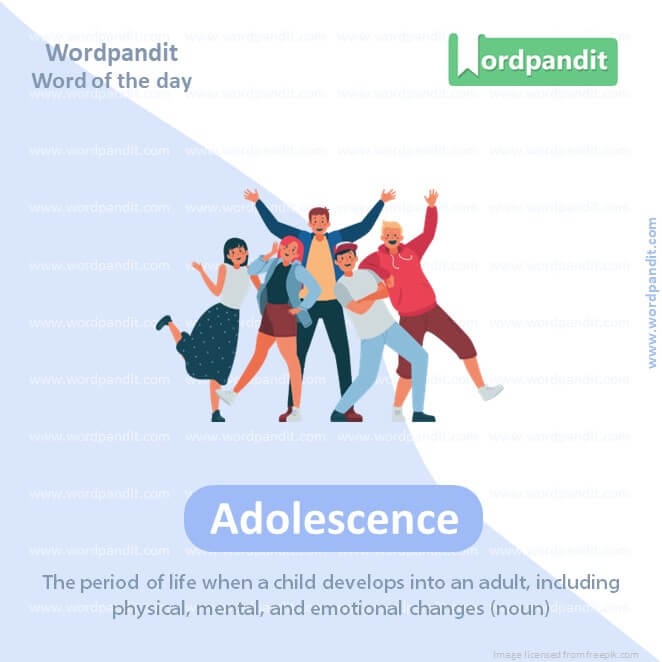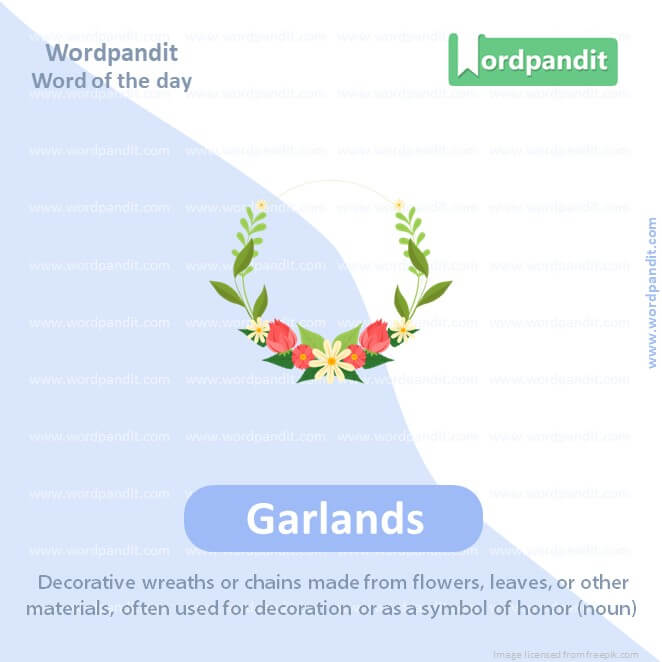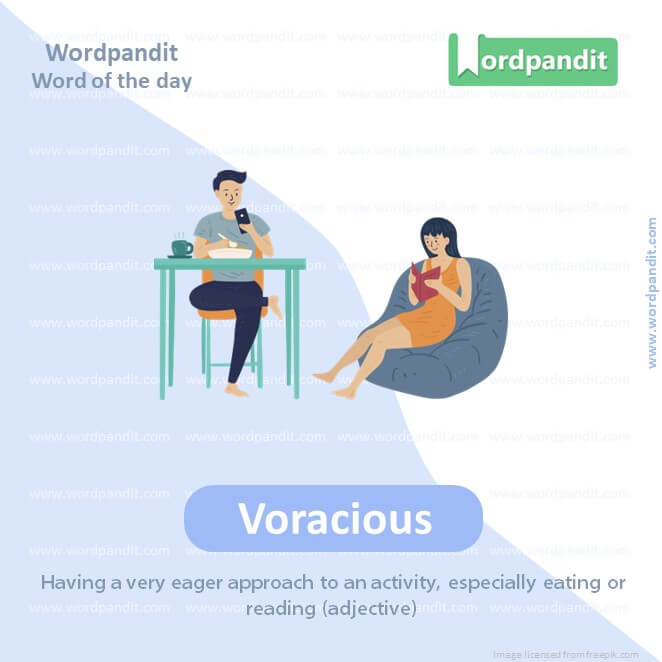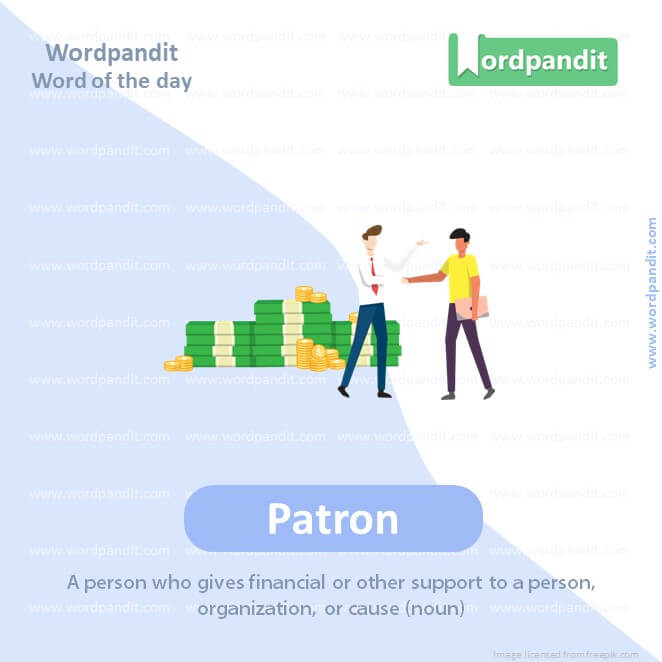Daily Vocabulary Words: List of Daily Used Words
Hi there. Welcome to this special section @ Wordpandit.
Our endeavour here is straightforward: highlighting important daily vocabulary words, you would encounter in The Hindu. This is your repository of commonly used words; essentially, we are posting a list of daily used words. Hence, this has significant practical application as it teaches you words that are commonly used in a leading publication such as The Hindu.
Visit the website daily to learn words from The Hindu.

WORD-1: Adolescence
CONTEXT: My father took me to Sector 19, off Madhya Marg, as our first Prime Minister was visiting Chandigarh, a city still in its adolescence, if not infancy. I was hardly three years old. As the pilot car passed by, the crowd got excited and started chanting and shouting slogans. My father lifted me on his shoulders so that I could have a clear view. I could see him in a slow-moving open car standing and waving to the crowds. The handlebar in his car was full of marigold garlands which he was throwing gradually one after another towards the crowd gathered along the Marg.
SOURCE: The Hindu
EXPLANATORY PARAGRAPH: Adolescence is like growing up from being a little kid to becoming a teenager. It’s a time when you’re not a child anymore but not quite an adult yet. You grow taller, change a lot, and learn more about who you are.
MEANING: The period of life when a child develops into an adult, including physical, mental, and emotional changes (noun).
PRONUNCIATION: ad-uh-les-uhns
SYNONYMS: Teenage years, Puberty, Youth, Teen years, Growth period, Maturation, Coming of age
USAGE EXAMPLES:
1. She became more independent during her adolescence.
2. Adolescence is often a challenging time for both children and parents.
3. His interest in music developed in adolescence.
4. The health class discussed the changes that occur during adolescence.

WORD-2: Garlands
CONTEXT: My father took me to Sector 19, off Madhya Marg, as our first Prime Minister was visiting Chandigarh, a city still in its adolescence, if not infancy. I was hardly three years old. As the pilot car passed by, the crowd got excited and started chanting and shouting slogans. My father lifted me on his shoulders so that I could have a clear view. I could see him in a slow-moving open car standing and waving to the crowds. The handlebar in his car was full of marigold garlands which he was throwing gradually one after another towards the crowd gathered along the Marg.
SOURCE: The Hindu
EXPLANATORY PARAGRAPH: Imagine a long string with flowers or leaves on it. This is a garland. People make garlands to decorate places for a party or to put around someone’s neck as a special way to say they’re important or welcome.
MEANING: Decorative wreaths or chains made from flowers, leaves, or other materials, often used for decoration or as a symbol of honor (noun).
PRONUNCIATION: gar-luhnds
SYNONYMS: Wreaths, Leis, Festoons, Floral chains, Chaplets, Flower circles, Coronets
USAGE EXAMPLES:
1. The hall was decorated with colorful garlands for the wedding.
2. She wore a garland of flowers in her hair.
3. Garlands were hung around the doors during the festival.
4. The winner was adorned with a garland of roses.

WORD-3: Exposition
CONTEXT: When he died, I was in the fourth standard. His Will’s copy printed on both sides of paper in Hindi and English was distributed to every child in the class. Later on, our school master, Moola Ram, delivered a sort of lecture on that Will. The way he described in his exposition Pandit Nehru’s love and attachment to the Ganga and his love for his countrymen brought me close to tears twice.
SOURCE: The Hindu
EXPLANATORY PARAGRAPH: Think of exposition like explaining a story. When someone tells you what’s happening in a story, where it takes place, and who the people in the story are, that’s exposition. It helps you understand the story better.
MEANING: A detailed explanation or description of an idea, theory, or story (noun).
PRONUNCIATION: eks-puh-zish-uhn
SYNONYMS: Explanation, Description, Elucidation, Clarification, Interpretation, Illustration, Presentation
USAGE EXAMPLES:
1. The author’s exposition of the setting was vivid and detailed.
2. The lecture included an exposition on the history of the civil rights movement.
3. The exposition at the beginning of the book was captivating.
4. He gave a clear exposition of the scientific principles involved.

WORD-4: Voracious
CONTEXT: Since then, I have tried to read every article or write-up on him that I could lay my hands on. He was a voracious reader at least till Independence and was himself an author of some eminently readable books. Discovery of India was on of the most well known. Shyam Benegal turned this book into a sensitively beautiful serial by the name Bharat ek Khoj for Doordarshan.
SOURCE: The Hindu
EXPLANATORY PARAGRAPH: Imagine someone who is super hungry and eats a lot of food really quickly. That’s what voracious means. It’s when someone has a big appetite and wants to eat or read a lot.
MEANING: Having a very eager approach to an activity, especially eating or reading (adjective).
PRONUNCIATION: vuh-ray-shuhs
SYNONYMS: Ravenous, Greedy, Insatiable, Gluttonous, Hungry, Avid, Unquenchable
USAGE EXAMPLES:
1. He’s a voracious reader, always with a new book in hand.
2. Her voracious appetite surprised everyone at the table.
3. The voracious animal quickly devoured its meal.
4. She had a voracious curiosity about the world.
WORD-5: Perceptive
CONTEXT: I never could read any of his books except his Autobiography, which I purchased in a used books market in Sector 15 seven or eight years ago in a paperback edition. I found this book to be remarkably perceptive, though it tells mainly about the author’s role in the freedom struggle for the period till 1936.
SOURCE: The Hindu
EXPLANATORY PARAGRAPH: Perceptive is when someone is really good at noticing things that many people might not see. Like if you can tell someone is sad just by looking at their face, that’s being perceptive. You understand things quickly and clearly.
MEANING: Having or showing sensitive insight or understanding of things (adjective).
PRONUNCIATION: pur-sep-tiv
SYNONYMS: Insightful, Observant, Intuitive, Discerning, Understanding, Aware, Sensitive
USAGE EXAMPLES:
1. She’s very perceptive about people’s feelings.
2. His perceptive comments added depth to the discussion.
3. The teacher was perceptive to the needs of her students.
4. He gave a perceptive analysis of the novel.

WORD-6: Patron
CONTEXT: For example, speaking of animals as symbols of ambition or character of various countries, he sums up: “Nor is it surprising that the Hindu should be mild and non-violent, for his patron animal is the cow.” The book was written in various jails in which he was confined from time to time by the British.
SOURCE: The Hindu
EXPLANATORY PARAGRAPH: A patron is like a helper or a supporter. Think of someone who goes to the same restaurant all the time because they really like it. They’re a patron of that restaurant. Patrons help places or people by giving support, often money.
MEANING: A person who gives financial or other support to a person, organization, or cause (noun).
PRONUNCIATION: pay-truhn
SYNONYMS: Supporter, Benefactor, Sponsor, Backer, Donor, Advocate, Financier
USAGE EXAMPLES:
1. The museum received a large donation from an anonymous patron.
2. She has been a loyal patron of the arts for many years.
3. The library was built with funds donated by a wealthy patron.
4. Local businesses became patrons of the school’s sports teams.
WORD-7: Confined
CONTEXT: For example, speaking of animals as symbols of ambition or character of various countries, he sums up: “Nor is it surprising that the Hindu should be mild and non-violent, for his patron animal is the cow.” The book was written in various jails in which he was confined from time to time by the British.
SOURCE: The Hindu
EXPLANATORY PARAGRAPH: Confined is like being in a small space where you can’t move around much. Imagine being in a small room and you can’t go outside. That’s what it means to be confined. You’re stuck in one place.
MEANING: Limited or restricted to a particular location, area, or space (adjective).
PRONUNCIATION: kun-fynd
SYNONYMS: Restricted, Limited, Enclosed, Trapped, Imprisoned, Constrained, Bound
USAGE EXAMPLES:
1. The patient was confined to bed for several weeks.
2. Animals should not be confined in small cages.
3. He was confined in a small room for questioning.
4. The study was confined to a specific group of people.
WORD-8: Auspices
CONTEXT: Come 12 years ago, while still in service, I attended a seminar about up-rating of the Bhakra hydro station under the auspices of the Central Board of Irrigation and Power. An engineer from the BBMB summed up his lecture with Nehru’s words: “These are the temples of modern India.” A lump came into my throat for my entire career was spent in the hydro energy sector.
SOURCE: The Hindu
EXPLANATORY PARAGRAPH: Auspices are like a helping hand or protection from someone powerful. Think of it as having a big, strong friend who looks out for you and makes sure things go well for you.
MEANING: Protection or support, especially from an organization or important person (noun).
PRONUNCIATION: aw-spuh-siz
SYNONYMS: Patronage, Guidance, Support, Sponsorship, Endorsement, Protection, Backing
USAGE EXAMPLES:
1. The event was held under the auspices of the local government.
2. The peace talks were conducted under the auspices of the United Nations.
3. The research was carried out under the auspices of the university.
4. The festival was organized under the auspices of the cultural association.
WORD-9: Self-proclaimed
CONTEXT: Nehru was a self-proclaimed agnostic who was secular to the bone and above communal prejudice. He led the newly independent nation in the right direction for almost 17 years, notwithstanding a few glaring mistakes.
SOURCE: The Hindu
EXPLANATORY PARAGRAPH: Self-proclaimed is when someone says they are something without anyone else saying it’s true. Like if you decide you’re the best singer in the world without anyone else saying so, that’s self-proclaimed. You’re saying it about yourself.
MEANING: Declared or stated to be something by oneself, without endorsement or recognition from others (adjective).
PRONUNCIATION: self-proh-klaymd
SYNONYMS: Self-declared, Self-styled, Self-titled, Self-named, Self-appointed, Self-anointed, Unofficial
USAGE EXAMPLES:
1. He is a self-proclaimed expert in the field.
2. The self-proclaimed leader was not recognized by others.
3. She introduced herself as a self-proclaimed artist.
4. The group was led by a self-proclaimed prophet.
WORD-10: Agnostic
CONTEXT: Nehru was a self-proclaimed agnostic who was secular to the bone and above communal prejudice. He led the newly independent nation in the right direction for almost 17 years, notwithstanding a few glaring mistakes.
SOURCE: The Hindu
EXPLANATORY PARAGRAPH: Agnostic is when someone isn’t sure if there’s a God or not. It’s like when you’re not sure if something is true, so you don’t say yes or no. An agnostic person doesn’t say for sure that God exists or doesn’t exist.
MEANING: A person who believes that nothing is known or can be known of the existence or nature of God, or of anything beyond material phenomena; a person who claims neither faith nor disbelief in God (noun).
PRONUNCIATION: ag-nos-tik
Synonyms: Skeptic, Doubter, Non-believer, Questioner, Freethinker, Secularist, Noncommittal
Usage Examples:
1. As an agnostic, he questioned the existence of a supreme being.
2. Her agnostic views made her skeptical of religious doctrines.
3. The philosophical debate included an agnostic perspective.
4. He described himself as agnostic towards most political issues.
Vocabulary Words in English
In the kaleidoscopic world of language, the thread of ‘vocabulary words in English’ weaves a rich tapestry. These words, the building blocks of communication, lend themselves to the eloquence and effectiveness of our speech and writing. Despite their significance, mastering ‘vocabulary words in English’ can sometimes be daunting, but with strategic approach, the process can be greatly simplified.
Learning ‘vocabulary words in English’ goes far beyond rote memorization. It requires an integrated approach that encompasses understanding and using the words. Consuming a diverse range of English materials such as novels, news articles, movies, music, and online content can acquaint you with words in actual use, helping you perceive both their meaning and usage in different contexts.
Furthermore, incorporating memory-enhancing techniques can add impactful strides to your journey of mastering ‘vocabulary words in English’. Methods such as the Leitner System or flashcards can bolster the memory retention of these words. Meanwhile, using mnemonic devices, associating words with unique stories or images, can help in retaining the ‘vocabulary words in English’ in long-term memory.
Another key to deciphering ‘vocabulary words in English’ is by practicing them in real-world contexts. Incorporate the new words into your daily conversations, written emails, or social media posts. Not only will this reinforce the meanings and applications, but also boost your confidence in using them.
In essence, understanding ‘vocabulary words in English’ is a continual journey that calls for persistent commitment, diverse learning approach, and ample practice. As you indulge in this exploration, you will find your command over the ‘vocabulary words in English’ becoming stronger, leading to more confident and dynamic communication. Remember – in the world of language, words are your faithful companions, and the more you engage with them, the more they’ll reveal their richness to you.













